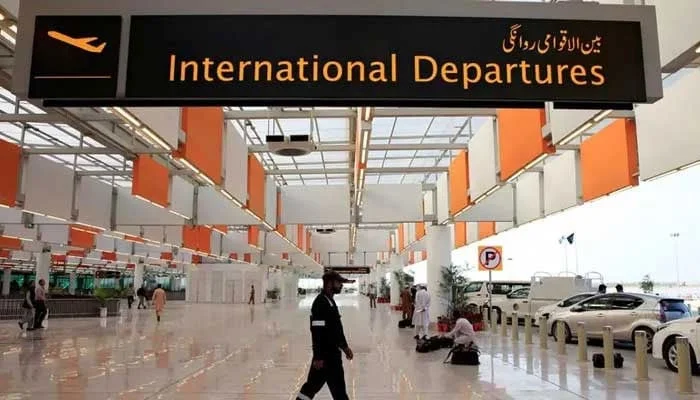Washington/Islamabad, March 21: Over 30 U.S. lawmakers have urged President Donald Trump to reconsider his proposed reinstatement of a controversial travel ban, arguing that it would negatively impact the American economy, damage diplomatic relations, and fail to enhance national security.
Thursday marked the deadline set by the Trump administration for finalizing any travel restrictions.
While the administration has not officially confirmed the imposition of a ban, reports about a draft list of affected countries have raised concerns, particularly among countries like Pakistan.
Travel Ban Not Good: Letters by US Congressmen
In a letter led by Arizona Democrat Yasmin Ansari and Illinois Democrat Brad Schneider, the lawmakers expressed strong opposition to reports suggesting that the administration might impose travel restrictions on citizens from up to 43 countries.
They warned that such a move would have far-reaching consequences that go beyond immigration policy.
“We urge you to reconsider this extreme approach as it poses significant economic, moral, and security challenges that outweigh its intended benefits,” the letter stated.
The lawmakers stressed the need for “common sense and bipartisan reforms” as an alternative to broad, sweeping restrictions.
Also Read: Trump Proposed Travel Ban Restrictions Pakistan in Orange Category
While reports suggest the Trump administration is categorizing countries into three tiers—red, orange, and yellow—based on security concerns, the U.S. State Department has denied compiling any such list.
Instead, it has clarified that it is in the process of reviewing the entire visa policy, which raises questions about the scope and potential implementation of the travel restrictions.
Travel Ban Not Good: Media Reports
However, a draft obtained by The New York Times reportedly places Pakistan in the “orange” category, meaning its citizens would be required to undergo in-person interviews for visa approvals.
If further security concerns arise, the country could be moved to the more restrictive “red” category.

In their letter, the lawmakers warned that imposing such a broad travel ban could disrupt economic relationships and international cooperation.
“International travel, trade, and tourism are drivers of our economy,” the letter stated.
It further noted that restricting travel from numerous countries could harm supply chains, deter foreign investment, discourage U.S. employers from hiring foreign workers, and strain diplomatic ties that support economic growth.
The lawmakers also rejected the justification for the travel ban on national security grounds, calling it both ineffective and discriminatory.
Travel Ban Not Good: No National Security Imperative
“There is no national security imperative to wholesale ban travelers from large swaths of the globe,” the letter said, adding that nationality alone is not a valid basis for determining security threats.
Brad Schneider, one of the lead signatories, criticized the policy as a “troubling step backwards,” warning that it could alienate U.S. allies and generate global resentment.
Read More: US Considers Travel Ban on Pakistanis Amid Security Concerns
The letter also highlighted the historical tendency of broad travel bans to backfire, as they often “alienate allies and fuel adversarial narratives, potentially driving vulnerable populations toward extremism.”
Beyond concerns over security and the economy, the lawmakers underscored the personal impact such a policy would have on families, students, and professionals.
They pointed to the previous version of Trump’s travel ban, implemented during his first term, which resulted in the separation of “thousands of Americans and U.S. residents from their loved ones abroad, including thousands of grandparents, children, husbands, and wives.”









